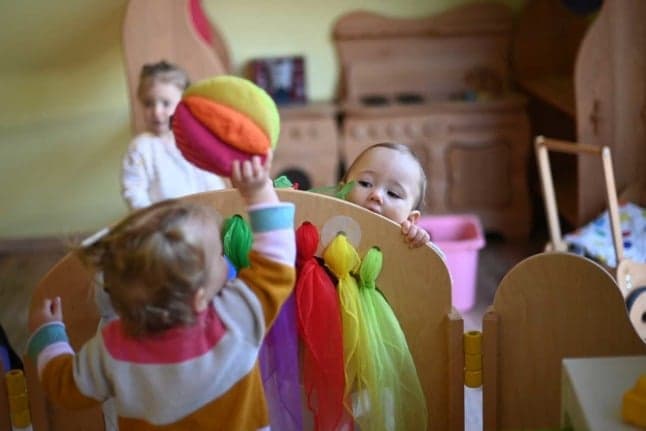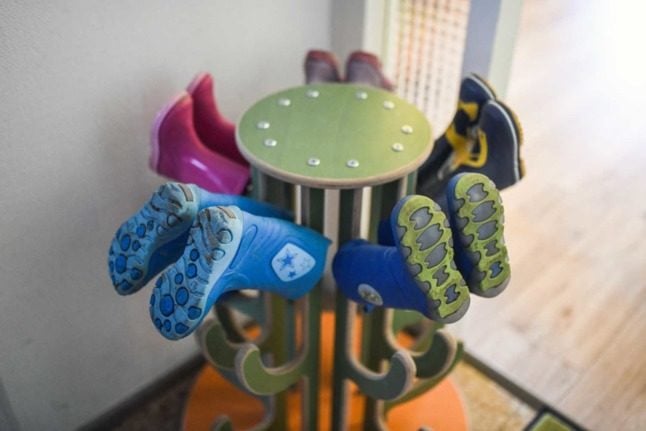Familienbeihilfe: What you need to know about Austria’s child support benefits

Do you have a child or children in Austria? You may be eligible for support benefits. Here's what you need to know.
Austria is known for having an extensive and generous social security system.
This extends to child support benefits, with the amount paid out to families each month exceeding that of many other countries.
But how does it work - and how much can people get?
Here’s what you need to know about child support benefits in Austria.
What is Familienbeihilfe?
The English translation of ‘Familienbeihilfe’ is ‘family help’ or ‘family allowance’.
It’s a government financial benefit that is designed to support families as they raise their children in Austria, as long as they are living in the same household.
Every family can access Familienbeihilfe, including EU/EEA and Swiss citizens, permanent residents and refugees.
The payments start automatically after the birth of a child and the money is usually paid directly to the mother.
What do you get?
The culture in Austria is very family-friendly so it comes as no surprise that child support payments are generous.
The current Familienbeihilfe rates have been in place since January 2018, with the amount a parent receives set by the age of the child to reflect the different stages of development.
For each child, a family will receive €114 per month from birth, then from the age of three it rises to €121.90, from the age of 10 a family gets €141.50 and from the age of 19 to 24 the amount is €165.10.
However, from the age of 18, Familienbeihilfe is only paid if the child is in vocational training, such as an apprenticeship, school, degree or University of Applied Sciences.
There is no maximum age limit if a child is permanently disabled before their 21st birthday, or during vocational training before their 25th birthday.
There is also a sibling scale (Geschwisterstaffelung), which means there is an additional amount every month for each extra child.
For example, with two children, a family will receive an extra €7.10 per child, and with three children the amount goes up to €17.40.
The rate continues to increase up to seven-plus children when the amount is €52.
Then there is the Schulstartgeld (for when children aged 6 to 15 start school each September) of €100 and a child tax credit for parents of children under 17, which is €58.40 per child per month.
Let’s not forget though that tax rates in Austria are high – particularly when compared with countries like the UK.
So it’s a case of you get out what you put in.
Anything controversial?
Earlier this year, the Austrian tax office came under criticism after Familienbeihilfe was suspended for thousands of families during entitlement reviews.
Reviewing the entitlement of benefits is a routine process for children that are studying or have a disability, according to an article in ORF.
But the process was delayed due to the pandemic, which led to a large backlog of paperwork, a waiting time of up to four months and reports of financial hardship for some families.
In recent weeks, the SPÖ (Social Democratic Party of Austria) has also called for families to receive an extra two payments of Familienbeihilfe annually for the next two years – particularly to help women impacted financially by the pandemic.

Children's gumboots on a gumboot stand. Photo: Ina FASSBENDER / AFP
How does it compare to other countries?
Familienbeihilfe payments in Austria are higher than similar schemes in other countries, such as the UK.
In the UK, the family allowance is known as Child Benefit and can be claimed by parents with a child under the age of 16, or under 20 if they are in education.
The rate is £21.15 (around €25) per week for the eldest or only child and £14 (€16) for each additional child. Child Benefit is paid every four weeks.
For families that earn more than £50,000 (€58,000), the child benefit might be taxed.
The USA, on the other hand, operates a tax credit system to offset the cost of raising a child, which at the moment is worth up to $2,000 (around €1,640) per child and is based on a family’s income.
This means poorer families are often unable to claim the full amount of tax credit.
But there are signs the system could be overhauled after an announcement earlier this year by the Biden administration about a plan to allow low to no income families to access the benefit, while phasing it out for high earners.
However in Ireland, a country with a family-friendly culture, the benefit system is even more generous than in Austria.
In Ireland, each family is entitled to claim €140 per month in Child Benefit until the child reaches 18 and there is no income threshold.
This amount is paid for every child, so the rate for two children is €280 per month, with the amount rising to €1,120 per month for eight children or more.
Comments
See Also
Austria is known for having an extensive and generous social security system.
This extends to child support benefits, with the amount paid out to families each month exceeding that of many other countries.
But how does it work - and how much can people get?
Here’s what you need to know about child support benefits in Austria.
What is Familienbeihilfe?
The English translation of ‘Familienbeihilfe’ is ‘family help’ or ‘family allowance’.
It’s a government financial benefit that is designed to support families as they raise their children in Austria, as long as they are living in the same household.
Every family can access Familienbeihilfe, including EU/EEA and Swiss citizens, permanent residents and refugees.
The payments start automatically after the birth of a child and the money is usually paid directly to the mother.
What do you get?
The culture in Austria is very family-friendly so it comes as no surprise that child support payments are generous.
The current Familienbeihilfe rates have been in place since January 2018, with the amount a parent receives set by the age of the child to reflect the different stages of development.
For each child, a family will receive €114 per month from birth, then from the age of three it rises to €121.90, from the age of 10 a family gets €141.50 and from the age of 19 to 24 the amount is €165.10.
However, from the age of 18, Familienbeihilfe is only paid if the child is in vocational training, such as an apprenticeship, school, degree or University of Applied Sciences.
There is no maximum age limit if a child is permanently disabled before their 21st birthday, or during vocational training before their 25th birthday.
There is also a sibling scale (Geschwisterstaffelung), which means there is an additional amount every month for each extra child.
For example, with two children, a family will receive an extra €7.10 per child, and with three children the amount goes up to €17.40.
The rate continues to increase up to seven-plus children when the amount is €52.
Then there is the Schulstartgeld (for when children aged 6 to 15 start school each September) of €100 and a child tax credit for parents of children under 17, which is €58.40 per child per month.
Let’s not forget though that tax rates in Austria are high – particularly when compared with countries like the UK.
So it’s a case of you get out what you put in.
Anything controversial?
Earlier this year, the Austrian tax office came under criticism after Familienbeihilfe was suspended for thousands of families during entitlement reviews.
Reviewing the entitlement of benefits is a routine process for children that are studying or have a disability, according to an article in ORF.
But the process was delayed due to the pandemic, which led to a large backlog of paperwork, a waiting time of up to four months and reports of financial hardship for some families.
In recent weeks, the SPÖ (Social Democratic Party of Austria) has also called for families to receive an extra two payments of Familienbeihilfe annually for the next two years – particularly to help women impacted financially by the pandemic.

How does it compare to other countries?
Familienbeihilfe payments in Austria are higher than similar schemes in other countries, such as the UK.
In the UK, the family allowance is known as Child Benefit and can be claimed by parents with a child under the age of 16, or under 20 if they are in education.
The rate is £21.15 (around €25) per week for the eldest or only child and £14 (€16) for each additional child. Child Benefit is paid every four weeks.
For families that earn more than £50,000 (€58,000), the child benefit might be taxed.
The USA, on the other hand, operates a tax credit system to offset the cost of raising a child, which at the moment is worth up to $2,000 (around €1,640) per child and is based on a family’s income.
This means poorer families are often unable to claim the full amount of tax credit.
But there are signs the system could be overhauled after an announcement earlier this year by the Biden administration about a plan to allow low to no income families to access the benefit, while phasing it out for high earners.
However in Ireland, a country with a family-friendly culture, the benefit system is even more generous than in Austria.
In Ireland, each family is entitled to claim €140 per month in Child Benefit until the child reaches 18 and there is no income threshold.
This amount is paid for every child, so the rate for two children is €280 per month, with the amount rising to €1,120 per month for eight children or more.
Join the conversation in our comments section below. Share your own views and experience and if you have a question or suggestion for our journalists then email us at [email protected].
Please keep comments civil, constructive and on topic – and make sure to read our terms of use before getting involved.
Please log in here to leave a comment.